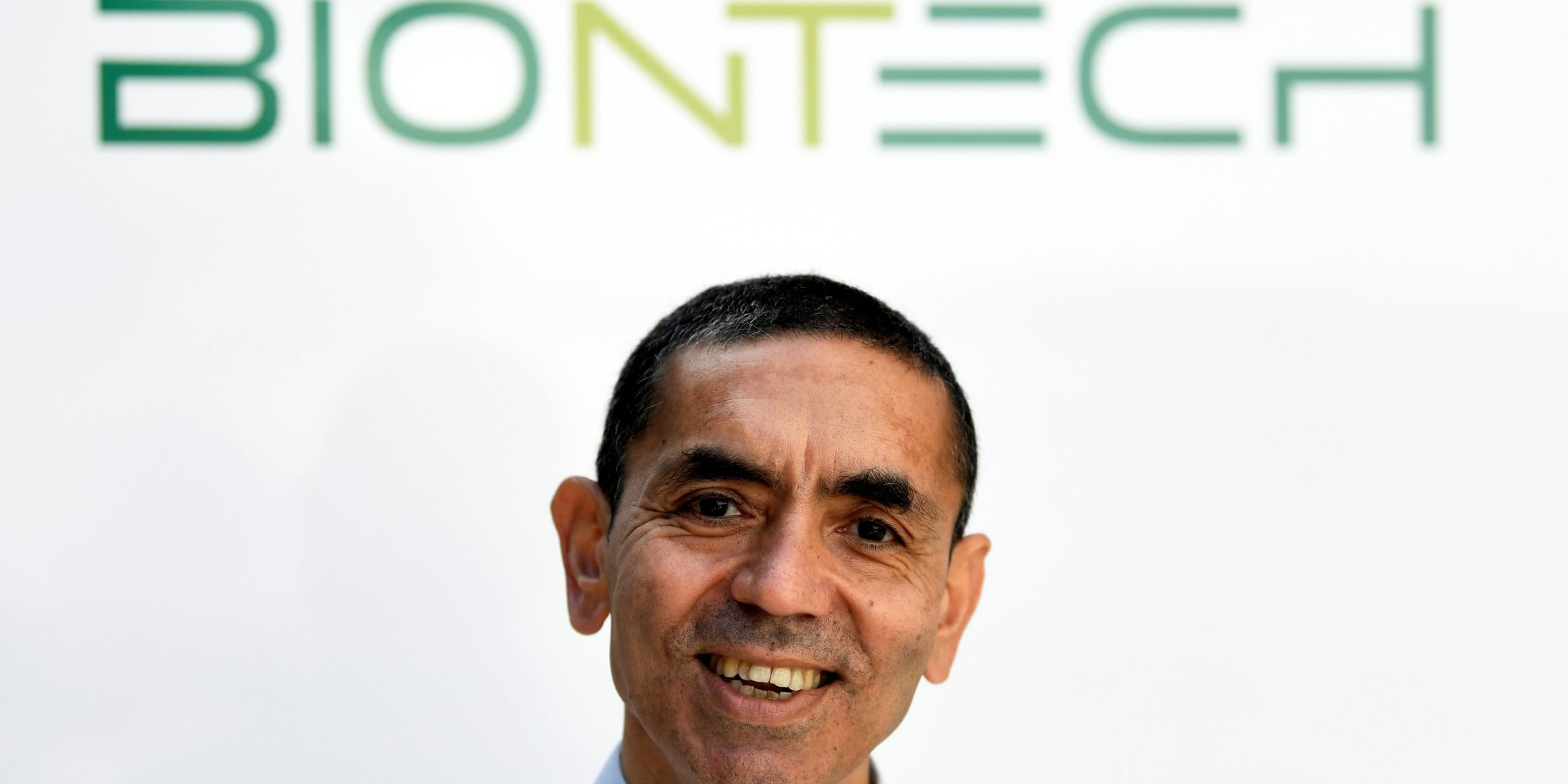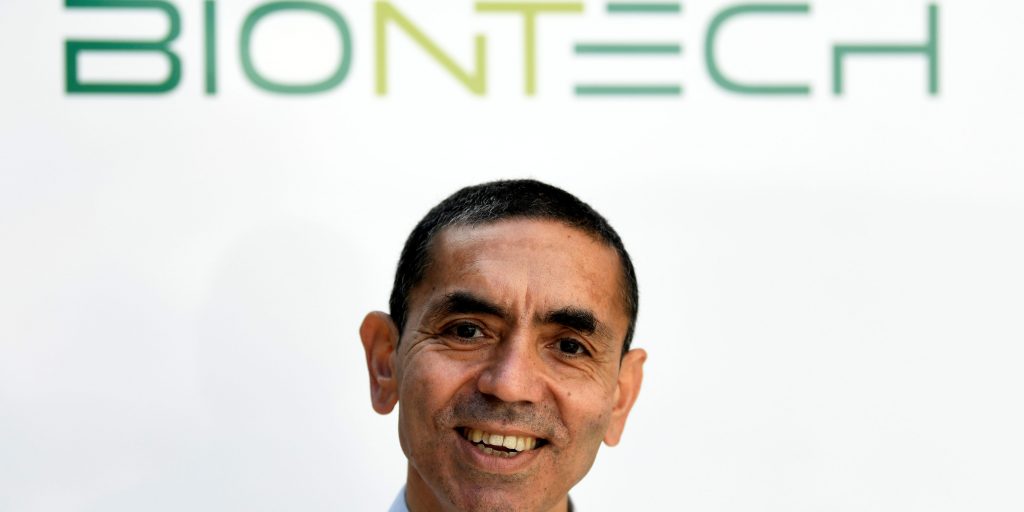
- BioNTech shares surged as much as 16% on Monday after the company reported bumper second-quarter earnings and upped projections for vaccine demand.
- Second-quarter revenue came in 127 times larger than the same period in 2020. The company went from losing money in Q2 last year to turning a €2.8 billion profit this year.
- BioNTech also said it expects to reap €15.9 billion in revenue from vaccine delivery. That is up from an earlier forecast in May of €12.4 billion.
- Sign up here for our daily newsletter, 10 Things Before the Opening Bell.
Shares in BioNTech surged as much as 16% on Monday as the German biotech company reported bumper second-quarter earnings and upped projections for vaccine demand.
The stock climbed as high as $452 – an all-time high – as investors digested the good news. BioNTech has been on a tear in recent weeks, buoyed by the resurgent Delta variant and global vaccine demand for the Pfizer-BioNTech jab.
"To address the ongoing pandemic, we are expanding the supply of our COVID-19 vaccine to more than 100 countries and regions worldwide," BioNTech CEO Uğur Şahin said in a statement.
BioNTech's explosive growth during the pandemic has led to eye-popping earnings numbers. Revenues in the second quarter came in 127 times larger than the same period in 2020. The company went from losing money in Q2 last year to turning a €2.8 billion profit this year.
The company announced it had signed contracts for more than 2.2 billion doses of its vaccine this year, and said it expects to reap €15.9 billion in revenue from vaccine delivery. That is up from an earlier forecast in May of €12.4 billion.
Vaccine demand is likely to persist well into next year, the company said, with more than a billion doses still left to be delivered in 2022 and beyond.
Emerging markets and frontier economies have been significantly slower to vaccinate than advanced economies, in part because of insufficient supply. While 30% of the world has got at least one dose of a COVID-19 vaccine, that number is only 1% for low-income nations.
